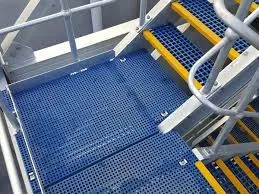
-
 Afrikaans
Afrikaans -
 Albanian
Albanian -
 Amharic
Amharic -
 Arabic
Arabic -
 Armenian
Armenian -
 Azerbaijani
Azerbaijani -
 Basque
Basque -
 Belarusian
Belarusian -
 Bengali
Bengali -
 Bosnian
Bosnian -
 Bulgarian
Bulgarian -
 Catalan
Catalan -
 Cebuano
Cebuano -
 China
China -
 China (Taiwan)
China (Taiwan) -
 Corsican
Corsican -
 Croatian
Croatian -
 Czech
Czech -
 Danish
Danish -
 Dutch
Dutch -
 English
English -
 Esperanto
Esperanto -
 Estonian
Estonian -
 Finnish
Finnish -
 French
French -
 Frisian
Frisian -
 Galician
Galician -
 Georgian
Georgian -
 German
German -
 Greek
Greek -
 Gujarati
Gujarati -
 Haitian Creole
Haitian Creole -
 hausa
hausa -
 hawaiian
hawaiian -
 Hebrew
Hebrew -
 Hindi
Hindi -
 Miao
Miao -
 Hungarian
Hungarian -
 Icelandic
Icelandic -
 igbo
igbo -
 Indonesian
Indonesian -
 irish
irish -
 Italian
Italian -
 Japanese
Japanese -
 Javanese
Javanese -
 Kannada
Kannada -
 kazakh
kazakh -
 Khmer
Khmer -
 Rwandese
Rwandese -
 Korean
Korean -
 Kurdish
Kurdish -
 Kyrgyz
Kyrgyz -
 Lao
Lao -
 Latin
Latin -
 Latvian
Latvian -
 Lithuanian
Lithuanian -
 Luxembourgish
Luxembourgish -
 Macedonian
Macedonian -
 Malgashi
Malgashi -
 Malay
Malay -
 Malayalam
Malayalam -
 Maltese
Maltese -
 Maori
Maori -
 Marathi
Marathi -
 Mongolian
Mongolian -
 Myanmar
Myanmar -
 Nepali
Nepali -
 Norwegian
Norwegian -
 Norwegian
Norwegian -
 Occitan
Occitan -
 Pashto
Pashto -
 Persian
Persian -
 Polish
Polish -
 Portuguese
Portuguese -
 Punjabi
Punjabi -
 Romanian
Romanian -
 Russian
Russian -
 Samoan
Samoan -
 Scottish Gaelic
Scottish Gaelic -
 Serbian
Serbian -
 Sesotho
Sesotho -
 Shona
Shona -
 Sindhi
Sindhi -
 Sinhala
Sinhala -
 Slovak
Slovak -
 Slovenian
Slovenian -
 Somali
Somali -
 Spanish
Spanish -
 Sundanese
Sundanese -
 Swahili
Swahili -
 Swedish
Swedish -
 Tagalog
Tagalog -
 Tajik
Tajik -
 Tamil
Tamil -
 Tatar
Tatar -
 Telugu
Telugu -
 Thai
Thai -
 Turkish
Turkish -
 Turkmen
Turkmen -
 Ukrainian
Ukrainian -
 Urdu
Urdu -
 Uighur
Uighur -
 Uzbek
Uzbek -
 Vietnamese
Vietnamese -
 Welsh
Welsh -
 Bantu
Bantu -
 Yiddish
Yiddish -
 Yoruba
Yoruba -
 Zulu
Zulu
fiberglass reinforced plastic pipe
The Advantages of Fiberglass Reinforced Plastic Pipe
Fiberglass reinforced plastic (FRP) pipes have emerged as a revolutionary solution for various industries, notably in the realms of construction, water treatment, and chemical processing
. Offering a unique combination of strength, durability, and resistance to corrosion, FRP pipes have become an attractive alternative to traditional materials such as steel and PVC.One of the primary advantages of FRP pipes is their enhanced strength-to-weight ratio. Compared to steel, fiberglass pipes are significantly lighter, making installation easier and more cost-effective. This lightweight nature does not compromise integrity; in fact, FRP pipes can handle higher pressures and temperatures, making them suitable for demanding applications. The unique composition of these pipes allows them to withstand harsh conditions, including extreme environments, which is particularly advantageous in industries like oil and gas, where exposure to corrosive substances is commonplace.
Corrosion resistance is another major benefit of FRP pipes. Traditional materials often succumb to corrosion over time, leading to structural failures and costly repairs. In contrast, fiberglass pipes do not corrode, allowing them to maintain their structural integrity throughout their lifespan. This feature translates into lower maintenance costs and reduced downtime, which is a crucial consideration for businesses looking to optimize productivity.
Moreover, FRP pipes are highly customizable, allowing designers and engineers to create pipe systems tailored to specific needs. They can be manufactured in various diameters and lengths, and customized with different resin systems to suit specific chemical and environmental conditions. This flexibility makes them ideal for a wide range of applications, from water distribution to wastewater management and industrial processing.
fiberglass reinforced plastic pipe

The installation of fiberglass reinforced plastic pipes also offers significant advantages in terms of time and labor costs. Their lightweight design simplifies the installation process, requiring fewer labor resources and less time compared to heavier materials. This efficiency can lead to significant project savings, particularly for large-scale installations.
Another notable attribute of FRP pipes is their resistance to UV radiation, which makes them suitable for outdoor applications. Unlike metal pipes that can deteriorate under prolonged sun exposure, fiberglass pipes retain their strength and integrity, making them ideal for applications such as irrigation and afforestation projects.
Environmental sustainability is becoming increasingly important in today's industrial practices. FRP pipes are typically produced with eco-friendly processes, and their longevity reduces the frequency of replacements, which in turn decreases waste. Additionally, the materials used can often be recycled at the end of their lifespan, further contributing to sustainability efforts.
In conclusion, fiberglass reinforced plastic pipes represent a significant advancement in pipe technology, offering unparalleled benefits in strength, weight, corrosion resistance, and cost efficiency. As industries continue to seek reliable and sustainable solutions for their piping needs, the use of FRP pipes is likely to grow. Their versatility allows for a wide range of applications, making them a smart choice for modern infrastructure. As the world progresses towards more efficient and environmentally friendly practices, FRP pipes will undoubtedly play a crucial role in shaping the future of construction, water management, and beyond.









